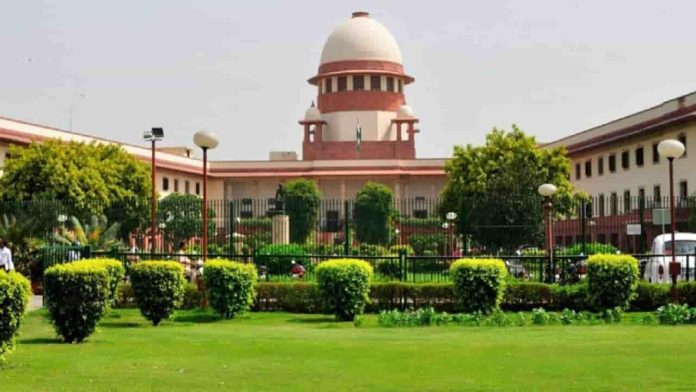The plea by the State Bank of India (SBI) to extend the deadline set by the top court for furnishing details of electoral bonds encashed by political parties since April 12, 2019 has been dismissed by the Supre e Court of India today.
The Apex Court while dealing with the case [ADR and Anr vs Union of India Cabinet Secretary and ors] dismissed the plea by the nationalised bank.
As per the record, the top court has et a deadline of March 6 for the papers, but the State Bank of India moved the Court seeking extension till June 30 to comply with the Court’s directions.
A Constitution Bench led by Chief Justice of India (CJI) DY Chandrachud, with Justice Sanjiv Khanna, Justice BR Gavai, Justice JB Pardiwala and Justice Manoj Misra ordered that the details be disclosed by March 12.
The Top Court said that with the submissions of SBI in application,it is quite clear that the bank already has information which it is asking for.
The court thus dismissed the application by SBI seeking extension of time until June 30.
The court has directed SBI to put on papers all the details before business hours of March 12, 2024 end.
The Court has clearly instructed the bank to comply with the directions laid by court lest the case for contempt of court is put against them.
After noting that the Electoral Bonds scheme was struck down by the top court last month, the bench passed the order lafter that the information furnished by the buyer of such bonds shall be treated as confidential by the authorised bank and shall be disclosed when called upon to do so or registration of an offence by a law enforcement agency only.
The Top Court said that as per the EB scheme, the SBI is mandated to disclose info only when demanded.
The court added that the details to be disclosed are readily available with the SBI.
As per the directions of the court, the SBI is to disclose info which is already available with it. The FAQs on electoral bonds state that the KYC documents must be submitted by the purchaser each time that the bond is purchased irrespective of that purchaser has a KYC verified purchaser account. Thus, details of EB purchased and directed to be disclosed is readily available, the order said.
Further it noted that the Frequently Asked Questions published by SBI with respect to redemption of electoral bonds states that each political party can only open one current account for electoral bonds redemption.
“The current account by the political party only in 4 authorised branches. Thus, details of info of EB encashed by political parties will be available in these 4 branches and the slips etc will have to be deposited with the main bank and this process was followed,” the bench observed while rejecting the plea.
The Court noted the submission of SBI that the process of decoding electoral bonds and relating donor to the donee is a time consuming exercise and that information is not available in digital format.the contempt jurisdiction, but we place SBI put on notice that this court will proceed against it for wilful disobedience of court if it does not adhere to the directions issued by the court, the order said.
The bench passed the order after noting that the Electoral Bonds scheme – which was struck down by the top court last month – itself stipulated that the information furnished by the buyer of such bonds shall be treated as confidential by the authorised bank and shall be disclosed when called upon to do so or registration of an offence by a law enforcement agency.
“Thus, as per EB scheme itself SBI is mandated to disclose info when demanded,” the Court said.


